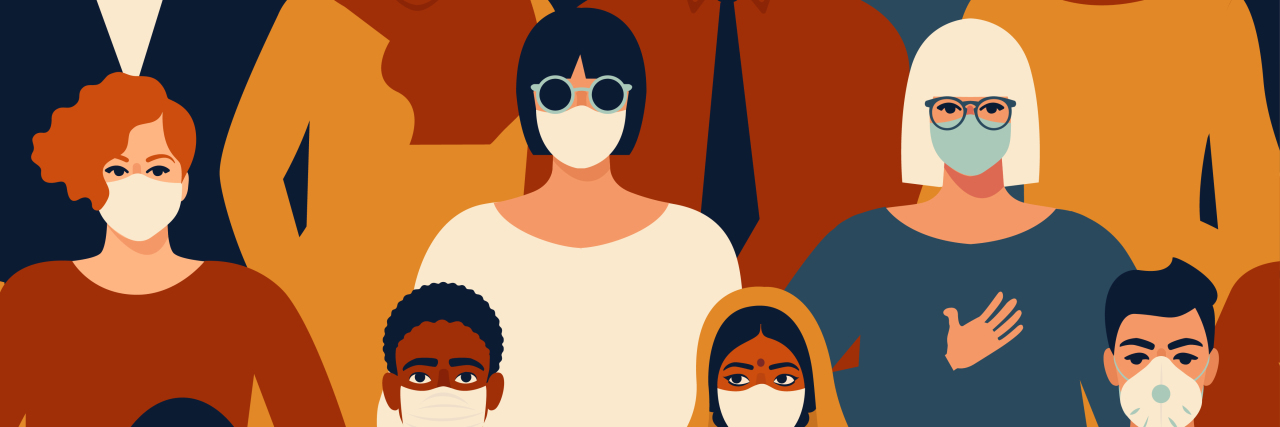How Cancer Has Prepared Me for Navigating the Coronavirus Outbreak
I was on the phone with my mother when a call beeped through.
“Let me get this,” I said to her. “It could be my doctor’s office.”
Turned out it was my congressman’s office, a call just as critical. I’d left a message that morning with him. I knew he was working with health insurers to see that patients like myself could stockpile drugs during this coronavirus pandemic, rather than having to wait for day-by-day prescriptions to be approved and paid for. In my case, my insurer will only pay for two weeks worth of drugs at a time. The Center for Disease Control recommends having a 90-day supply on hand.
This day’s issue was telemedicine, being able to conduct a doctor’s visit over the phone. I’d read horror stories on Twitter from folks saying it was a great idea, but they couldn’t access it because their health insurance companies wouldn’t pay for it. I wanted my congressman to know and do something about it.
Those of us with cancer who are in active treatment are vulnerable to the coronavirus. Every day, we make ordinary decisions that could have extraordinary, detrimental results. According to STAT, researchers say we’re 3.5 times more likely to contract the coronavirus and 79% more likely to need hospitalization or to die from it. Those statistics are sobering enough.
This leaves cancer patients like me with some difficult choices. How long can we self-quarantine? And what about our family members who are going out and about, not adhering to the same strict self-imposed safety standards we are such as social distancing and rampant handwashing? How do we distance from them, living in the same house? What about doctor’s appointments and treatments? Do I forgo bloodwork and scans that are keeping an eye on my progression in lieu of social distancing? How do I social distance in a crowded waiting room? Is it even possible?
Changing hardwired habits are hard enough. I’ve taken to putting Tabasco sauce on my fingers to remind myself not to touch my face. Perennial handwashing is taking a toll on my already red, swollen and chapped hands, a side effect of the chemotherapy I’m on. Using disinfectant wipes and keeping my distance from friends and neighbors I meet while out walking in my town are new norms I’m not ready for.
Add to that a fight for public policy changes that we need to make quickly to adapt to this new coronavirus world, and well, it does get overwhelming in a hurry.
The one advantage cancer patients have going into this is being well aware that life comes at you fast, changing in a moment’s notice. When the president says we will “win” in the end, we know that what is winning today isn’t necessarily how we’ll define it tomorrow. When we’re first diagnosed, we think we’ll be the ones to beat incurable cancer. And for a while, we do. Then it comes back and we redefine our win as being able to live alongside it as long as it’s not doing any damage. Then it does damage, and our definition changes again. Winning is living with pain that can be managed. Winning is living with decreased lung capacity or slower brain functioning. We listen to people during this pandemic telling us it’s just a matter of time before life returns to normal and do our best not to smirk because we know it doesn’t return to the way it was. It evolves into something we call a “new normal,” a term many of us loathe.
In that respect, cancer patients are better prepared than most. We know the horrors that are on the horizon, the losses, the grief, the regrouping and the resiliency. We know there are some things, no matter how hard you try, no matter how many good decisions you make, you still can’t protect yourself from. We know how to live in a world that doesn’t have answers.
As a wise woman once told me: when there are no answers, there are choices. And your choices will be changed, just as you will be changed by them.
Some of those changes will be for the better. Some will be for the worse. But there is one thing I can guarantee about the coronavirus: There is no going back and in the end, we will all be changed.

